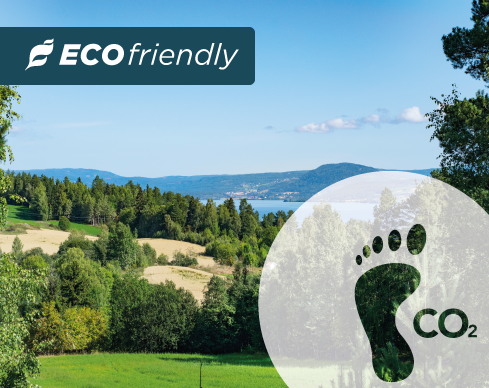-
sub_menu
-
main_content_covidmobile_main_contentmain_content_headermain_content_header_top_leftmain_content_header_bottom_leftmain_content_header_top_rightmain_content_alertmain_content_1
-
JANUARY
28

World Day for the Reduction of CO2 Emissions, also known as the World Day for Action against Global Warming, is a United Nations (UN) initiative held annually on 28th January. An important date on the calendar in terms of taking decisions that will promote the care of our planet, informing and raising awareness among society regarding the impact humans have on the environment and which is reflected in our carbon footprint.
The carbon footprint refers to the total CO2 emissions generated by an organisation’s activities and is an indicator for determining companies’ environmental behaviour.Reducing the carbon footprint is an action that concerns us all: businesses, institutions and citizens.
Here at THB hotels, we work throughout the year to achieve annual reductions in our CO2 emissions through the application of innovative measures. In order to mark this special day, we would like to share with you our latest report on the chain’s corporate carbon footprint.
THB Hotels’ greenhouse gas (GHG) inventory was drawn up in accordance with the activities carried out at all the properties we operate on Majorca, Ibiza and Lanzarote. A control method was used, taking into consideration the total amount of emissions over which the organisation has operational control.
The calculations were made based on the following scope 1 and scope 2 emissions:
- Scope 1. Direct emissions from GHG sources that THB hotels own or control. Specifically, they include the following consumptions (which vary depending on the type of property):
o Diesel oil combustion
o Flue gas combustion
o Tank-stored LPG gas combustion
o Bottled propane gas combustion
o Refrigerant gas leads de gases
Scope 2. Indirect emissions from electricity generation. These are produced by the organisation’s activities, although they are generated off-site (in power stations, for example).
In all cases, the methodology used is based on the following formula: Emission (CO2 t) = Activity information x Emission factor*
*In all instances, the emission factor used was that provided by the Spanish Ministry for Ecological Transition, and calculations were made using its official calculator for determining and recording carbon footprints.In comparison with the figures for 2017, the following conclusions can be drawn regarding THB hotels’ carbon footprint for 2019:
- There has been an overall fall of 34.30% in CO2 emissions
- The ratio per stay dropped 32.51% in comparison with the benchmark year.A comparison between the figures for 2018 and 2019 reveals the following:
- Total emissions fell by 19.82%
- There was a 19.05% reduction in the ratio by stayHow did we do it?
- In 2019, THB HOTELS’ corporate carbon footprint benefited from the changeover to piped natural gas, which has a lower emission factor in relation to the direct consumption of fossil fuels.
- We managed to reduce fluorocarbon emissions thanks to the gradual replacement of these gases for others with a lower GWP (gases that are less harmful in terms of the greenhouse gas effect). This reduction is also due to the rise in the number of preventive inspections and the replacement of equipment in order to prevent leakages.
- Electricity emissions at THB hotels have dropped significantly, as part of an annually growing trend. This is due to the reduction of the emission factor of the electricity distributor. The focus is on electricity consumption, which is the principal producer of emissions
- We are committed to contracting certified green electricity to power our hotels in the Canary Islands. This means that all the electricity used is electricity obtained exclusively from renewable sources and therefore has zero GHG emissions.
- We favour replacing fossil fuels for renewable energies in order to heat water in a number of hotels, through the use of either solar panels or biomass (an example is our heated pools in the Canary Islands).
We are committed to the ongoing reduction of THB hotels’ carbon footprint each year and to working hard to ensure that our activity makes the least possible impact on the environment.
main_content_2main_content_3main_content_4main_content_5main_content_6main_content_7main_content_8main_content_9main_content_10main_content_11main_content_12main_content_13main_content_14main_content_15main_content_16main_content_17main_content_18main_content_19main_content_20main_content_21main_content_22main_content_23main_content_24main_content_25main_content_26main_content_27main_content_28main_content_29main_content_30main_content_footer_top_without_bordermain_content_footer -
